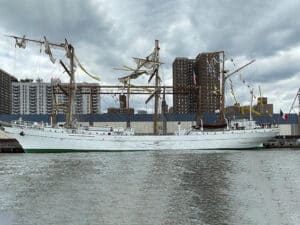
How to avoid main engine damage
Written by Nick Blenkey
JUNE 28, 2018 — Statistically a vessel will suffer between one and two incidences of main engine damage during its life time. The latest loss prevention publication from the Swedish Club looks at ways to avoid main engine damage, starting with choice of engine type.
Latest statistics from the Club show that vessels propelled by medium/high speed engines have a claims frequency 2.5 times higher than slow speed engines.
“Our investigation shows that bulkers and tankers are the best performers for claims cost in comparison with Club entry,” says Peter Stålberg, the Club’si Senior Technical Advisor. “Most of these vessels have slow speed engines. Conversely passenger vessels/ferries have the highest frequency of main engine claims – 0.066 claims per vessel and year. Often these vessels have multiple medium speed engine installations. The same is also true for Ro-ro vessels.
“When there is a choice to be made between a slow speed engine and a medium/high speed engine, the Club’s experience demonstrates that the slow speed engine is the safer option.”
Lubrication failure is still the most expensive and frequent cause of damage, followed by incorrect maintenance and/or repairs.
Main engine claims account for 28% of all machinery claims and 34% of the costs, with an average claims cost close to $650,000.The most expensive type of damage is on crank shaft/bearings with an average cost of $1.2 million per claim.
The Swedish Club’s advice on how to avoid main engine damage includes:
- Implement robust onboard fuel and lubrication oil management systems.
- Carry out drip sampling when bunkering. Avoid consuming the fuel until analysis results are available.
- In addition to onboard testing of lubrication oil, submit samples for laboratory analysis at regular intervals, at least every third month.
- At regular intervals, carry out system checks of purifiers and filters for both fuel and lubrication oil systems.
- Ensure that maintenance manuals are at hand and that proper tools are available and calibrated. Crew members must have the necessary training and experience to carry out maintenance.
- It is highly recommended that engine maintenance is carried out as part of a computer based PMS (Planned Maintenance System), linked with the onshore organization.
- During major overhauls it is recommended that an expert from the manufacturer is in attendance – consider a formal service agreement.
- Always take engine alarms seriously, for example oil mist detection, and investigate thoroughly. A fully functional alarm system is essential for the safe operation of the main engine.
Download the Swedish Club publication HERE





Leave a Reply
You must be logged in to post a comment.